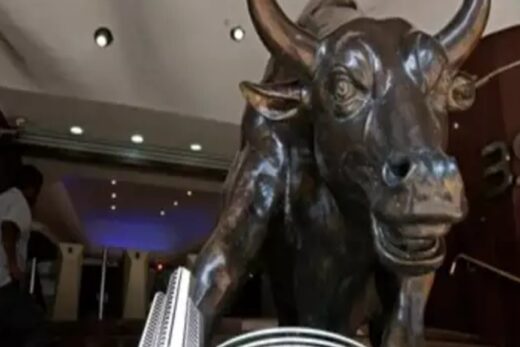It has been an interesting earning season so far. While demand seems to be surprising everybody on the upside, the impact of high commodity pricing is something which has been felt by best of the franchise like Asian Paints and Pidilite. How should one understand this scenario, strong demand but low margins?
As far back as November, December last, we had said that this was a highly likely event and that demand would come roaring back post Covid and there would be input cost inflation the world over. This is not just unique to India, this is a global challenge and in such a circumstance, you have to be invested in champion franchises, market leaders, consistent compounders, master franchises — whatever you call them.
That strategy is working nicely for us. So whether it is Asian Paints, Pidilite, Page Industries, or Titan — all of these are part of our consistent compounder portfolio. They are pulling away radical amounts of market share. We are seeing 30-40% volume growth from the master franchises. We have got the first half operating margin down year on year but I do not think we should lose too much sleep about that. What are you focusing on? What you are benefitting from is the consolidation of massive industries in favour of one or two companies and that is the theme we will see the rest of the year.
One day, commodity price inflation will abate but by then, the master franchises would have locked in so much market share. And the interesting thing is that the online leaders, firms like Nykaa are doing exactly that, but in the online context. In the offline world, Asian Paints and Pidilite have been doing a similar job. The consolidating markets for decades and that is why we like them and I reckon this theme will continue. The consolidation of the Indian economy with every sector consolidating into the hands of one or two companies will continue and hence the focus will be on staying with master franchises, with consistent compounders.
The entire uptick in commodity prices and the pricing pressure which Asian Paints, Pidilite and Havells have gone through, has not shaken your thesis. You still believe that the only way your firm would be investing is to concentrate on these good companies which have brand, distribution and which are gaining market share in this tough time.
Absolutely and that argument is becoming easier to make. Let us take Pidilite results as a case in point. I do not think any of us will say that demand for adhesives or waterproofing will abate given that we have got real estate and building materials recovery underway. So adhesives and waterproofing is required. Now which company has dealt with the input cost pressures the best? Ask any analyst, any promoter operating in the adhesives or building material sector, they will say Pidilite has dealt with it beautifully.
It has got some 30% or 40% volume and revenue growth in the first half of the year and if you adjust for that Araldite acquisition, basically EBITDA is flat. So even in an environment where the pricing of underlying raw material, VAM, has tripled in the last six months. Pidilite is giving 30-40% growth in business while keeping profit margins flat. That is outstanding management of input cost inflation and that is what you and I are paying for when you are buying this franchise.
Remember, Pidilite is a company which has grown free cash flows 200X in the last 20 years and in the first half of this year, they are showing why they are such a champion franchise. So when the going gets tough, the tough get going. The master franchises show their class, they decimate the opposition and which is why we in Marcellus love these franchises and load up on them to the tune of billions of dollars.
While Nykaa is a profitable company, the market cap is now higher than that of Britannia or a Godrej Consumer or for that matter even Marico. What is going on, are we missing something or is this the way markets are telling us that the future is going to be very different from the past and not be obsessed with the old way of focusing on companies and valuing them?
I have to confess I am not an expert on Nykaa. But I have seen that my wife buys stuff from Nykaa pretty much every week but I have to confess I am not an expert on Nykaa’s valuation. Without specific reference to any one company, broadly speaking this is how the math works; if you have a company which grows free cash flows at around 25% for the next five years and thereafter cash flow growth fades away. A decent company in India which can grow well for five years and then you have a fade. Five years of strong growth in free cash flows would pay roughly around 25 times PE.
If the same franchise can grow cash flows at 25% for 15 years, you can pay even up to 80 times and you will make money on the stock. If the same franchise grows free cash flows at 25% for 20-25 years, which is often the case with the master franchises, that we invest in free cash flow compounding of 25% for 20-25 years and where even if you pay 250 PE, you still make money. It is this ability to understand why some companies are able to grow cash flows at 25% for decade after decade whereas the vast majority, 90-95% are not able to do so. This is the ability to separate diamonds from dust and hence the name of our book Diamonds in the Dust. It is the inability to separate diamonds in the dust which leads to people getting lost in this whole maze of PE multiples.
A champion franchise and many of our investee companies are worth three to four times the current PE the market is attributing to it. The market does not know and that is why there is inefficiency in the market which people like us try to profit from. The market does not realise that a Titan potentially or even a Nykaa could compound free cash flows at 25% perhaps for 10-20-25 years — in which case the current share price does not do justice to it.



